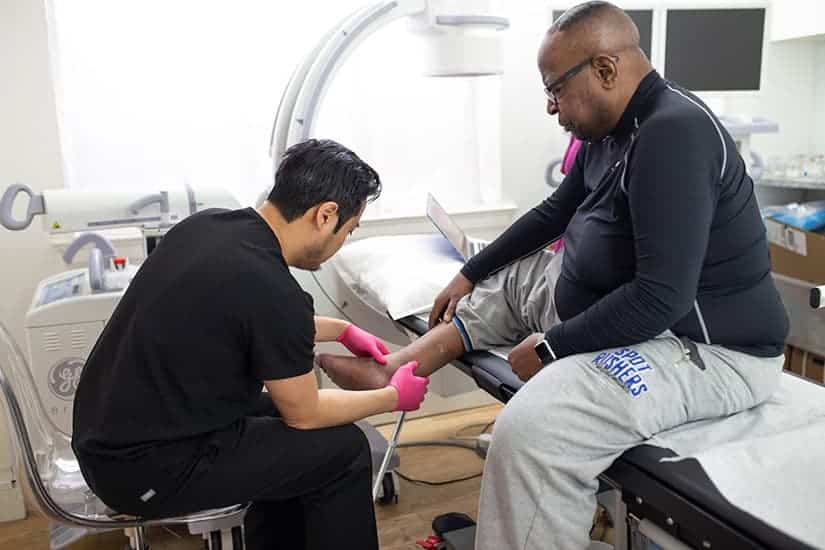A vascular surgeon is a doctor who specializes only in the vascular system, which, in simpler terms, is simply known as blood vessels. A vascular system, therefore, relates to the involvement of arteries, veins, and capillaries and generally provides connectivity to every single element within the body.
Because the vascular system is complex, with different parts, the role of a vascular specialist comes in handy. Continue reading to learn about their day-to-day activities and when you are advised to visit one.
Who is a vascular surgeon?
A vascular surgeon has undergone five years of medical school, three years of general surgery training, and then three years of specialized surgical training in vascular surgery.

They are experts in the whole vascular system, including the arterial, venous, and lymphatic circulatory systems. Vascular surgeons treat conditions like peripheral artery disease, varicose veins, deep vein thrombosis, aneurysms, and other disorders of the circulatory system.
They perform minimally invasive procedures such as angioplasty and stenting, as well as open surgical procedures for bypass grafting. Vascular surgeons work in association with specialists in cardiology, radiology, podiatry, and wound care to achieve the best results for their patients.
Early signs that indicate to visit the vascular surgeon
Your body always gives signs that you should not avoid when it comes to health. Here are some of the major things you should note in order to know “When to see a Vascular Doctor.”
Diabetes
This is an early symptom that shows how you can have varicose veins. To know this, you need to understand what the root cause of diabetes is. So, when the body produces a hormone that is called insulin, it converts the food into sugar that gets mixed with the blood. Diabetes causes the body to either not generate enough insulin or not use it appropriately. High blood glucose levels have the potential to accumulate over time and lead to atherosclerosis, a disorder that narrows or clogs arteries. The body suffers additional damage as a result of less blood and oxygen getting to the tissues and organs

Legs Hurt
If you are the one whose legs hurt, then it is also essential not to avoid the pain and consult the doctor at the right time. By checking the doctor, you can also ensure what the reason is for the pain and how you can get it treated in the initial time. This may be a condition known as claudication, which is a vascular disease symptom in which your legs hurt after short walks. It feels better to pause or take a nap.
Swelling or Itching
If you are also experiencing swollen legs or itching most of the time, then you should connect with the doctor. They are far more than just a cosmetic worry for about 30 million men and women. Varicose veins can eventually lead to a more serious illness called chronic venous insufficiency (CVI), in which the veins in the legs have difficulty returning blood to the heart.
Sudden Abdominal and Back Pain
This is also a main sign of getting a varicose vein or any other problem that results in vein discomfort. If it happens in the abdominal aorta, a big artery that connects the heart to the chest and belly, it might pose a serious health risk. An abdominal aortic aneurysm can potentially lead to the formation of blood clots. Clots can prevent blood from reaching the muscles, tissues, and organs, resulting in pain, paralysis, and the possibility of permanent tissue damage and limb amputation.
In conclusion
This article has stated how you can get the symptoms of treating the varicorse veins and what you have to do in order to stop it in the initial stage. There are many types of doctors who are treating varicose veins, so it is necessary to know about “What Kind of Doctor Treats Varicose Veins” so that you cannot go wrong.